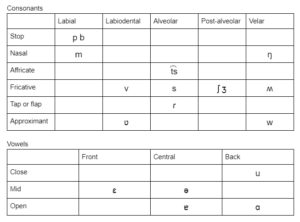Jackson Loze ‘24
Contributing Writer
In collaboration with the Philosophy Club, the Tripod features one of their discourses on John Locke.
Often described as the “Father of British Empiricism,” John Locke stands as one of the most influential philosophers of the early modern period. In his work, An Essay Concerning Human Understanding, Locke’s primary aim concerns determining the limits of human understanding to establish what one can and cannot legitimately claim to know. While many philosophers would consider such monumental work to be a success, given the essay’s continued prominence at the foundation of modern philosophical empiricism, some of Locke’s expressed beliefs invite more confusion than clarity for his readers. An example of such opaque beliefs can be seen in Locke’s discussion of the idea of substance in general, a concept that has been debated for centuries. To contribute to the ongoing discussion surrounding Locke’s view of substances, this article will speculate three answers Locke may give to being asked “How do you envision the idea of substance in general?”
Before offering potential answers, it is important to distinguish what Locke means when he writes about our idea of ‘substance in general.’ Within the historic debate amongst philosophers involving substances, most beliefs can be classified as being either categorical, which pertains to the types of substances that exist (e.g., lead, gold, or God), or metaphysical, which examine our idea of substance and how we conceptualize it. While Locke’s categorical beliefs are also the subject of much controversy, this article will examine his metaphysical views. Put simply, the idea of substance in general is what would be left if all the qualities that distinguish sorts of substances from one another could be stripped away.
Answer #1: “Substance-in-general does not exist and is human invented folk metaphysics”
An interpretation that has risen in popularity has been that Locke does not believe in the existence of substances in general. The textual evidence that supports such interpretation is as follows:
“There is another idea, which would be of general use for Mankind to have, as it is of general talk as if they had it; and that is the idea of substance, which we neither have nor can have, by sensation or reflection… We have no such clear idea at all, and therefore signify nothing by the word substance, but only an uncertain supposition we know not what (i.e., of something whereof we have no distinct positive) idea, which we take to be the substratum, or support of those ideas we do know.”
As seen by his explicit statement “We have no such clear idea at all, and therefore signify nothing by the word substance,” this quote would suggest that Locke believes we have no knowledge of substance in general; however, it is worth noting that after being accused by the Bishop of Worcester Edward Stillingfleet of discarding substances out of the reasonable part of the world, Locke changed this passage from describing substance as “something whereof we have no idea” to “something whereof we have no particular distinct positive idea” in the 4th edition of the essay.
Answer #2: “I view substance-in-general as a featureless substratism”
Given its prominence among secondary literature, the second possible answer I will analyze is that Locke views our idea of substance in general as a featureless substratum, commonly known as the ‘bare particular theory.’ This theory is strikingly similar to Aristotle’s views expressed in Metaphysics, where he claims that the substratum which underlies a thing primarily is thought to be in the truest sense its substance. He defines such substratum as “[T]hat of which the other things are predicated, while it is not itself predicated of anything else.” The most common piece of textual evidence used to support this interpretation is in book 2, chapter xxiii of Essay Concerning Human Understanding:
“The Mind … takes notice also, that a certain number of these simple Ideas go constantly together; which being presumed to belong to one thing … are called so united in one subject … Because, as I have said, not imagining how these simple Ideas can subsist by themselves, we accustom ourselves, to suppose some Substratum, wherein they do subsist, and from which they do result, which therefore we call Substance … The Idea then we have, to which we give the general name Substance, being nothing, but the supposed, but unknown support of those Qualities.”
Based on quotes like this, supporters of the bare particular theory hold that for Locke, substance in general is used solely as a functionalist term. Given that our ability to sense and reflect has left us with ideas of a multitude of both primary and secondary qualities, this interpretation holds that there logically must be something in which those qualities inhere which in and of itself is not a quality. This leaves us with a bare ‘something,’ which has no properties, except the property of being the support of other properties
Answer #3: “I would prefer not to answer”
Due to the importance that the idea of substance had to the Christian religion during the early modern period, an interpretation I believe to be possible is that Locke purposefully kept his stance on substance opaque to avoid either losing favor with or harming the teachings of the Church. In 1697, the Bishop of Worcester Edward Stillingfleet publicly accused Locke of almost discarding substances out of the reasonable part of the world. Stillingfleet worried that Locke’s empiricist philosophy would subvert the Church’s teachings about the Trinity and soul’s immortality given that the concept of substance lies at the heart of both those doctrines. As mentioned previously, such correspondence caused Locke to change a passage in book one of An Essay Concerning Human Understanding from describing substance as “something whereof we have no idea” to “something whereof we have no particular distinct positive idea” in the 4th edition of the essay.





+ There are no comments
Add yours